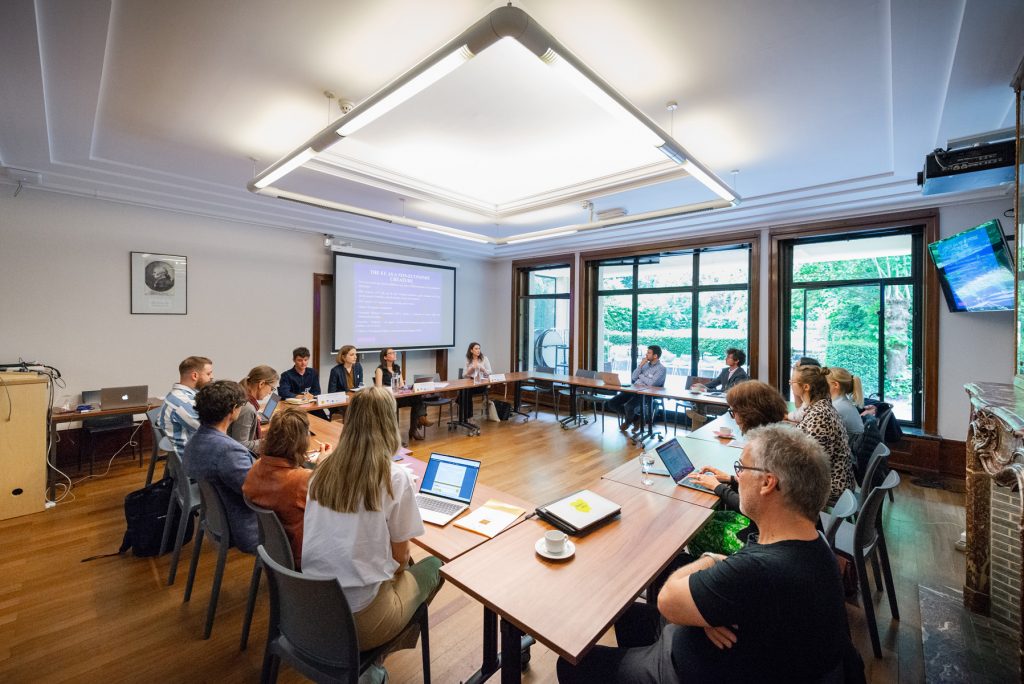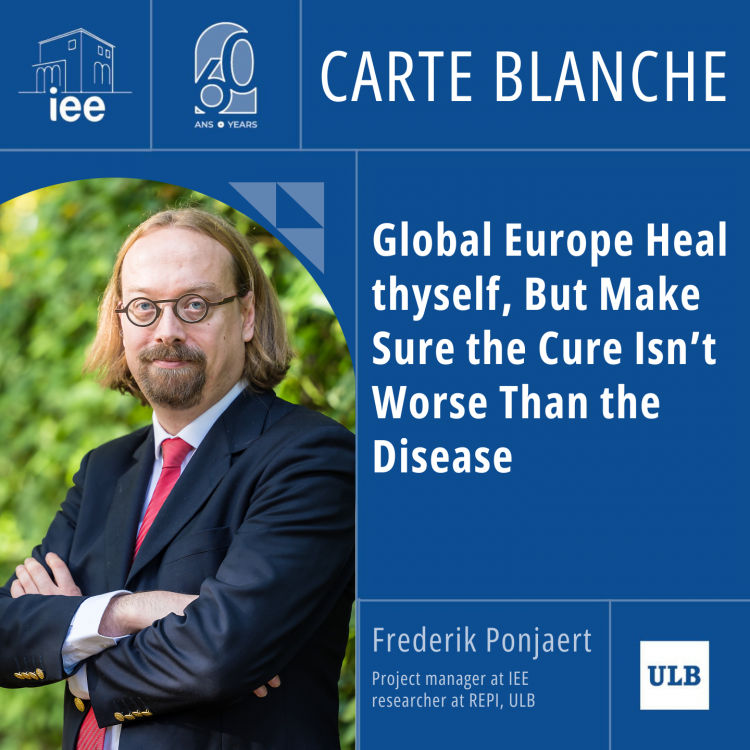Diego Caballero Vélez is the IEE’s research logistic collaborator since April 2022. He holds a PhD in Political Science, European Politics and International Relations from Sant’Anna School of Advanced Studies (Pisa). He has been PhD visiting student at the Refugee Studies Centre from the University of Oxford and at the SGH Warsaw School of Economics. In addition, he has worked at the European Commission as Blue Book trainee at the Research Executive Agency. His research interests include European migration, asylum and security policies, political economy, EU external action and multi-level governance.
Conceptualizing mobility inequalities
Chaired by Professor Ilke Adam (VUB), the 8th panel “Inequality, mobility and migration within the EU” showed a comparative perspective of how social inequalities may affect migration and, to some extent, its policies. This #IDEAS22 panel focused on how some factors such as economic integration, legal shortcomings and the covid crisis have uncovered inequalities among migrants, provoking some effects in mobility patterns. The multidisciplinary nature of the panel led presenters to discuss the different reasons of mobility inequalities making connections among them. From a process of European disintegration provoked by a “critical juncture” to national citizenship laws; the analysis of the roots of those inequalities put on the floor interesting questions about intra-mobility in the EU.
After a comparative historical analysis of England, Germany, China and the USA, Prof. Seeleib-Kaiser (Eberhard Karls Universität Tübingen) outlined how individuals face up with restrictions to access minimum social protection. Prof. Seeleib-Kaiser put forward the idea that economic integration has not been enough to overcome migrants’ barriers to access social assistance. In addition, he claimed that even though political coalitions and public support are preconditions for providing access to social assistance in the EU, they are not important for the cases analyzed.
In order to eliminate these barriers, economic integration and solidarity-sharing is insufficient; institutional intervention to end practices that discriminate EU migrants’ access to social protection is also needed, said Prof. Seeleib-Kaiser.
Conceptualizing inequality in migration studies has never been an easy task. In this regards, Prof. Davies questioned, by using a social-class approach, the favorable perception often given those who successfully leave (migrants) compared to those who cannot. In some cases, for instance, such as in the UK or Bulgaria, even when a migrant becomes a citizen of the host country he or she always remains seen as a migrant, limiting their integration. In his speech, Prof. Davies discussed to what extent migration may be considered a privilege because, in some cases, law creates class differences, those who are mobile are sometimes considered a class apart.
“What is inequality and what is privilege?”, Prof. Davies questioned, giving room to discussion amongst the audience.
Various approaches have been adopted to understand constitutional, substantive, procedural and process-oriented approaches to identifying European disintegration. In her speech, Ms. Mariana Mykyliuk (University of Salzburg) referred to regulation gaps in the Schengen area to identify inequalities in the right to freedom of movement. We could advert that the covid crisis has uncovered unjustified discrimination responses to intra-mobility in the EU. Still public order and security remain as national competence of the Member States and in situation of crises there is a lack of common response. Her research gives room to future investigation about health policy competences in crisis management situations and how to avoid an overlapping to the freedom of movement.
Inequalities in mobility regulations’ narratives
Panel 13 “Inequality, global mobility and the EU” offered a rich discussion about recent regulation developments in migration in both national and EU levels. This Panel, chaired by Prof. Trauner (VUB), aimed to explore some aspects of recent developments in EU mobility, presenting different theoretical models. Presenters explained how the institutional framework both at the EU and national levels produces inequalities in migration phenomena. By exploring narratives about and around regulations, some interesting insights arise: some migration regulations do not fit with social inequalities and the “problèmatique” behind it.
At the EU level, Mr. Ahmad-Yar (VUB) analyzed past EU migration and asylum legal measures through the case study of the EU New Pact on Migration (NPM), comparing it with other past EU legal measures. The 2015-2016 crisis is taken as reference point where some legal measures such as the Refugee Emergency Relocation scheme were adopted in other to face up with the challenging situation. Through a comparison with other refugee emergency-related measures, the Pact, concluded Mr. Ahmad-Yar; misses the chance to focus on important issues such as external solidarity, root causes of migration or long-term programme for future migration challenges.
“The Pact is already challenged to respond the contemporary migration crisis”, Mr. Ahmad-Yar claimed
Turning the discussion to labour migration, Prof. Susanne K. Schmidt (University of Bremen) presented the cases of Poland and Slovenia to put on the floor an analysis about Western-Eastern countries’ relationship in third-country posting. Making an intra-comparison among Eastern countries, Slovenia seems more cooperative towards Western demands to restrict access to visas; on the other hand, Poland appears to have less constraints when it comes to granting visas, thus increasing the capital-labour conflict between the West and the East as Eastern region heterogeneity on this issue may appear to be a problem.
There are no expectations about Eastern Member States to curb third-country posting, said Prof. Schmidt.
Last but not least, Ms. Ayesha Riaz (Queen Mary University of London) explained thorough a comprehensive presentation how in the UK legal aid regulations have been developing in relation to asylum seekers and undocumented/irregular migrants. Based on historical frames (from 1945 to 2020), we can see how bureaucratization has increased, leading to transforming solicitors into civil servants.
Recently, some external factors such as Covid crisis has led to less bureaucracy and more flexibility in the procedures related to client signatures and office requirements, said Ms Riaz.




